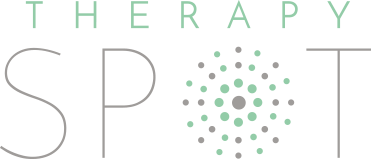The Importance of Early Intervention in Children’s Speech Therapy
Children go through so many critical stages of development early in life. They’re discovering so many new things, learning how their bodies work and about the world around them.
Speech, language, and communication are among some of the most important things that develop in their very first years. Communication is important for getting their needs met, expressing themselves, and generally learning to socialize – among other things.
Those with speech and language disorders will struggle to speak and communicate, making certain parts of life more difficult. The best thing you can do for a child with speech and language issues is to start treating them early in their development. Early intervention can greatly improve their outcomes and results, setting them up for better success both immediately and down the road.
Early Signs of Speech and Language Disorders
Knowing if and when to begin speech and language therapy for your child can be tough, since all kids develop differently. Even with their differences, however, there are some guidelines you can follow to track milestones.
If your child doesn’t meet certain milestones within a generally expected time frame, it’s always worth a conversation with a professional. Even if nothing turns out to be wrong, you’re better safe than sorry.
Examples of some general guidelines from Stanford Children’s Health include:
- 3-6 months: cooing, giggling, making various vocalizations
- 6-11 months: saying their first word, mimicking sounds, communicating with gestures
- 12-17 months: says two or three words consistently, can answer basic questions non-verbally
- 18-23 months: can use pronouns, make simple requests such as for food, makes animal sounds
- 2-3 years: can answer simple questions verbally, understands simple descriptions like “large” or “happy,” starts using past tense and plurals
- 3-4 years: can identify colours, can express feelings and ideas, speech becomes more understandable to strangers, can repeat sentences
- 4-5 years: can answer “why” questions, can list items in a category, can describe how to do things
- 5 years: understands rhyming, uses imagination, can hold a conversation
These are just some basic examples and timelines, but they’re good to keep in mind. Even the smallest suspicion that something is delayed or not right is worth investigating.
How Early Intervention Can Help
Recognizing a speech and language disorder in children is important, but why is earlier better? There are many reasons, including benefits for the child, their family, and those around them. Early intervention can happen as young as 12 months. The benefits of starting early are many:
Brain Development
Children develop most of their language and speech skills in their first three years – a time when their brain is most open to learning and highly impressionable. Treatment during this time can use this stage of development as an advantage and see stronger, faster results.
Communication Skills
Good communication skills are important for all facets of life – from play to learning, to your daily routines. By intervening early, it’ll help your child become a better communicator, despite their obstacles or limitations. This reduces frustration for your child as well as yourself and those around them.
Starting School
Most children start some form of school by three or four years old. If they’ve already started speech and language therapy before then, they’ll have an easier time adjusting and communicating with classmates. They may even be able to catch up to their peers before school starts.
Being able to effectively communicate with those at school will make for a better experience as they may already be nervous and overwhelmed. The early years of school also play a big role in the development of social skills. They’ll learn to pick up on cues, read body language, communicate their own boundaries, etc.
Especially since they’ll be away from their family, even if it’s for a short time, early intervention in speech therapy will go a long way in helping them settle in.
Parental Support
There’s no doubt that parents play a huge role in their child’s early development – demonstrating language, behaviour, social cues, etc. As parents, you’re just as important in the early intervention and treatment of a speech and language disorder in your child!
Once in treatment, the speech and language pathologist will give you tools and strategies to help your child develop and learn at home. These things will be tailored to your child and their specific issues. You can use these tools all throughout the day, from playtime to meals, reading, and more.
Children’s speech therapy is much more than a weekly visit with a speech and language pathologist. Everything must be reinforced at home and the more consistent you are, the better. Just like the therapy itself, it’s best when these deliberate interventions and strategies are implemented early.
Non-Verbal Strategies
Speech and language disorders vary widely in terms of symptoms and severity. For those that are non-verbal or have more serious limitations, non-verbal strategies are important. Things like signs, images, and even written communication can be crucial.
If a child will need non-verbal strategies going forward, they should start learning and growing comfortable with them early. It’s also helpful for parents and others close to them to learn along with them as best they can.
We Offer Versatile Treatment
We understand that not everyone’s schedules and circumstances are the same. This is why we have plenty of options, including private therapy, school programs, group therapy, and workshops. We’ll work with you to come up with the perfect plan for your child.
We also offer our services wherever works best for you! You’re welcome to come into the clinic, but we’re also happy to come to you. Some kids may respond better and be more comfortable at home, while others may benefit from a change of scenery with no familiar distractions.
Don’t hesitate to contact us today with any questions or concerns. If you have any suspicions about a speech and language disorder in your child, the earlier we can get them started in children’s speech therapy, the better.





